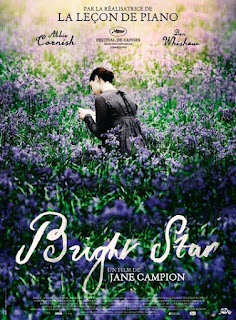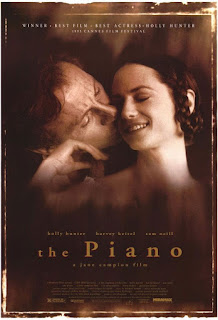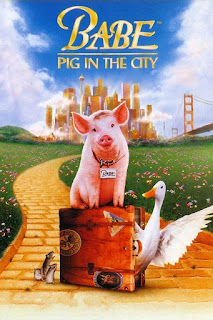BRIGHT STAR (Jane Campion, 2009)
NOTE: This film will be projected in the high-definition Blu-ray format.
In the early 1800s, a young socialite meets poet John Keats and becomes infatuated with him.
Writer-director Jane Campion originally studied anthropology in her native New Zealand, then moved to Australia and earned a degree in painting, followed by enrolling in the Australian Film, Television, and Radio School. Her short film Peel won the top award in its category at the Cannes Film Festival in 1986, her debut theatrical feature Sweetie also premiered at the festival, and her follow-up An Angel At My Table went to the Venice Film Festival where it won the Grand Special Jury Prize. Her major international breakthrough came with 1993's The Piano, which won the Palme d'Or at Cannes, making her the first woman to take the festival's top prize, and also earned her an Academy Award for Best Original Screenplay.
Campion downshifted in the 2000s, only making one feature and two short films, taking four years off to raise her young daughter. After reading a biography of Keats, she read another book of his collected letters, and became fascinated with his relationship with Fanny Brawne, and then went deep into studying his poetry. Determined to portray this story on screen, but wanting to avoid standard biopic tropes, she made the decision to construct the narrative from Fanny's point-of-view.
Cast in one of the lead roles was Australian actress Abby Cornish, coming off the local success of Somersault, which swept her country's film Academy Awards. Keats was played by British actor Ben Whishaw (Perfume, I'm Not There), the actor learning how to write with quill and ink for the film; all the on-screen letters are in his own hand. Also appearing are American actor Paul Schneider (The Assassination of Jesse James..., TV's Parks and Recreation), former Campion collaborator Kerry Fox, and Thomas Sangster (TV's Game of Thrones, Love Actually).
The film was shot on location outside London and in Elstree Studios, with one scene shot in Rome, Italy. While Keats's own house was still standing, it was viewed by the production team as too small for their purposes, so they chose another period building in Bedfordshire. Behind the camera was Greig Fraser (Zero Dark Thirty, Lion). Both the costume and production design were by Jane Patterson, who had worked on several of Campion's previous films.
Campion eased back on her usual showy direction, wanting the setting and mood to speak for itself, having recently studied classic works and inspired by Robert Bresson's film A Man Escaped. Taken on as a mantra for the production was Keats's invented term "negative capability", meaning to pursue beauty into uncharted intellectual waters, a defiance of philosophical yearning. It can be seen not only in her images but in the intimacy of the performers, as she gave her actors a free rein to do what seemed natural and authentic to them.
Bright Star premiered at the Cannes Film Festival. It received mostly positive reviews from critics, with Cornish singled out among the cast. It was nominated for 11 Australian Academy Awards, with wins for Fraser and Patterson (in both categories she was shortlisted for). Schneider took Best Supporting Actor honors from the National Society of Film Critics.
Running time is 2 hours.
In the early 1800s, a young socialite meets poet John Keats and becomes infatuated with him.
Writer-director Jane Campion originally studied anthropology in her native New Zealand, then moved to Australia and earned a degree in painting, followed by enrolling in the Australian Film, Television, and Radio School. Her short film Peel won the top award in its category at the Cannes Film Festival in 1986, her debut theatrical feature Sweetie also premiered at the festival, and her follow-up An Angel At My Table went to the Venice Film Festival where it won the Grand Special Jury Prize. Her major international breakthrough came with 1993's The Piano, which won the Palme d'Or at Cannes, making her the first woman to take the festival's top prize, and also earned her an Academy Award for Best Original Screenplay.
Campion downshifted in the 2000s, only making one feature and two short films, taking four years off to raise her young daughter. After reading a biography of Keats, she read another book of his collected letters, and became fascinated with his relationship with Fanny Brawne, and then went deep into studying his poetry. Determined to portray this story on screen, but wanting to avoid standard biopic tropes, she made the decision to construct the narrative from Fanny's point-of-view.
Cast in one of the lead roles was Australian actress Abby Cornish, coming off the local success of Somersault, which swept her country's film Academy Awards. Keats was played by British actor Ben Whishaw (Perfume, I'm Not There), the actor learning how to write with quill and ink for the film; all the on-screen letters are in his own hand. Also appearing are American actor Paul Schneider (The Assassination of Jesse James..., TV's Parks and Recreation), former Campion collaborator Kerry Fox, and Thomas Sangster (TV's Game of Thrones, Love Actually).
The film was shot on location outside London and in Elstree Studios, with one scene shot in Rome, Italy. While Keats's own house was still standing, it was viewed by the production team as too small for their purposes, so they chose another period building in Bedfordshire. Behind the camera was Greig Fraser (Zero Dark Thirty, Lion). Both the costume and production design were by Jane Patterson, who had worked on several of Campion's previous films.
Campion eased back on her usual showy direction, wanting the setting and mood to speak for itself, having recently studied classic works and inspired by Robert Bresson's film A Man Escaped. Taken on as a mantra for the production was Keats's invented term "negative capability", meaning to pursue beauty into uncharted intellectual waters, a defiance of philosophical yearning. It can be seen not only in her images but in the intimacy of the performers, as she gave her actors a free rein to do what seemed natural and authentic to them.
Bright Star premiered at the Cannes Film Festival. It received mostly positive reviews from critics, with Cornish singled out among the cast. It was nominated for 11 Australian Academy Awards, with wins for Fraser and Patterson (in both categories she was shortlisted for). Schneider took Best Supporting Actor honors from the National Society of Film Critics.
Running time is 2 hours.










Comments
Post a Comment